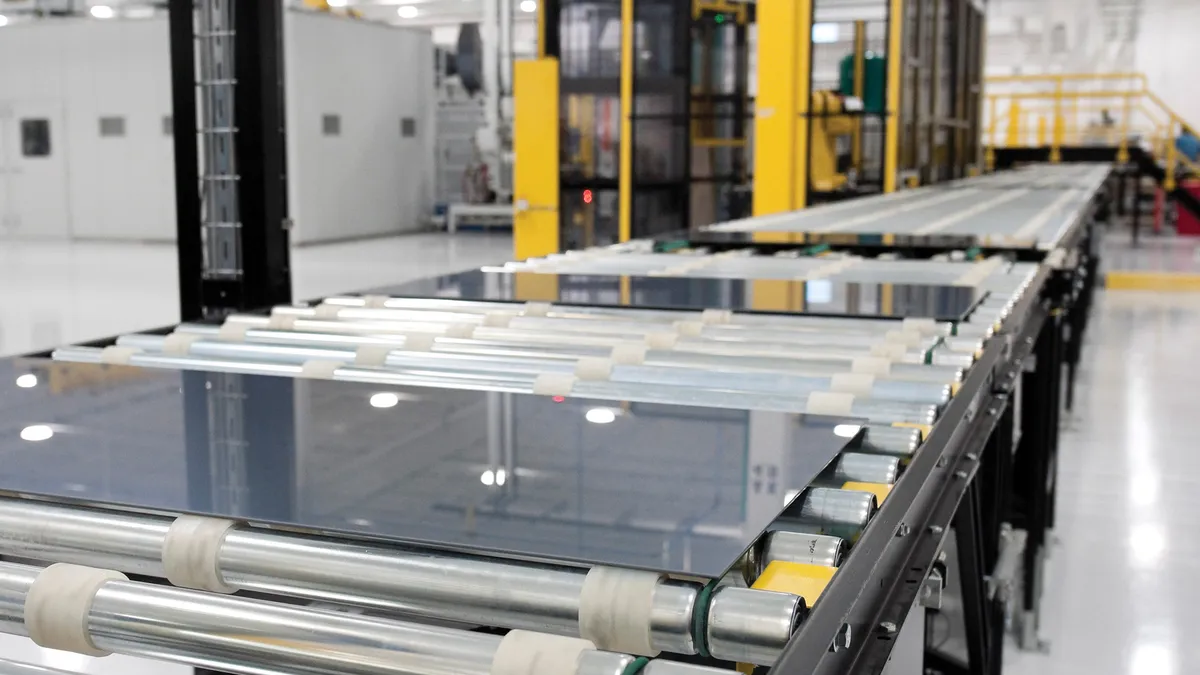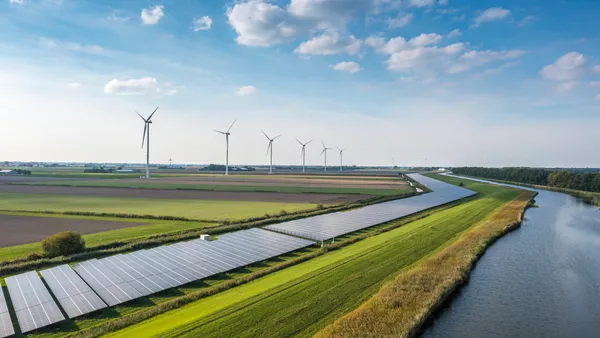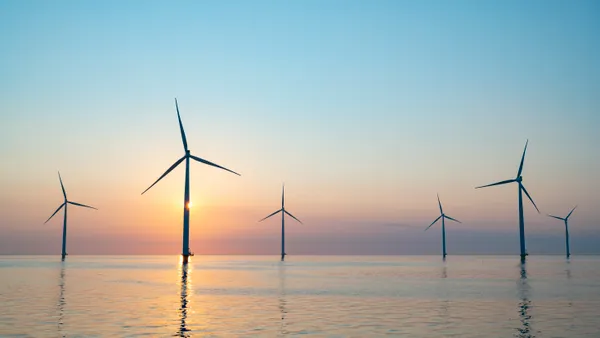Dive Brief:
- The U.S. Department of Commerce announced Monday that it will move forward with an anti-dumping circumvention investigation of solar cells from four Southeast Asian countries in response to a February petition from California-based solar panel assembler Auxin Solar.
- The agency decided to move forward with an investigation into the assembly of crystalline silicon photovoltaic (CSPV) cells in Cambodia, Malaysia, Thailand and Vietnam based on claims that manufacturers use parts made in China that otherwise would be subject to a tariff. The investigation could take up to a year; suppliers have indicated they may stop shipments from those countries to the U.S. until a final ruling is issued.
- The Solar Energy Industries Association has warned that initiating the investigation will further disrupt CSPV projects. Roughly 17 GW of utility-scale solar projects were installed in 2021 — 3 GW less than expected — with installation slowing most notably in the fourth quarter due to supply chain constraints, trade issues and policy uncertainty, according to a report by Wood Mackenzie and SEIA.
Dive Insight:
The Department of Commerce said it will consider additional tariffs on the solar industry after the Biden administration extended Section 201 tariffs on monofacial PV cells made in China. Solar industry groups have said this case will have a chilling effect on solar installations in the U.S.
"This misstep will have a devastating impact on the U.S. solar market at a time when solar prices are climbing, and project delays and cancellations are adding up," Abigail Ross Hopper, president and CEO of SEIA, said in a statement.
“The solar industry is still reeling from a similar tariff petition that surfaced last year. The mere threat of tariffs altered the industry’s growth trajectory and is one of the reasons why we’re now expecting a 19% decline in near-term solar forecasts," she said, referencing Wood Mackenzie's analysis.
The Biden administration's solar tariff extension had an exemption for bifacial panels, but the investigation would impact all developments that involve CSPV cells. In Auxin's petition, the company alleges that U.S. CSPV imports from those Southeast Asian countries rose in the last decade as U.S. imports from China fell. Auxin claims Malaysia was the source of 31% of U.S. CSPV imports in 2021, while Thailand and Vietnam were the source of 20% and 25%, respectively. The company also targeted Cambodia, which had provided a smaller piece of U.S. CSPV imports, for the large influence that China has as a top foreign investor in the country, it said.
Current and future projects involving CSPV cells will be at risk, solar installers said.
"The continued threat of tariffs poses a significant barrier that will drag out projects and drive up costs," George Hershman, CEO of solar installer SOLV Energy, said in a statement.
In its February filing, Auxin Solar alleged that assembly operations in Cambodia, Malaysia, Thailand and Vietnam involve exporters that source CSPV cells and modules from China, calling it "textbook circumvention" of the tariffs against Chinese-produced solar materials.
"For years, Chinese solar producers have refused to fairly price their products in the U.S. and have gone to significant lengths to continue undercutting American manufacturers and workers by establishing circumventing operations in countries not covered by those duties. We are grateful Commerce officials recognized the need to investigate this pervasive backdoor dumping and how it continues to injure American solar producers," Mamun Rashid, CEO of Auxin Solar, said in a statement.
The petition was similar to an effort in 2021 to trigger a Commerce Department investigation, which the department rejected in November because the petitioners remained anonymous and were targeting specific solar PV manufacturers in Malaysia, Thailand and Vietnam.
Auxin filed its petition soon after the Commerce Department initiated a separate circumvention inquiry into quartz surface products from Chinese components that are assembled in Malaysia. The solar manufacturer said the separate intervention indicates "that Commerce takes seriously patterns of trade that evidence circumvention."
Solar advocates have opposed the petition and asked the Commerce Department to reject an investigation as the U.S. continues its efforts quickly decarbonize the energy sector. In the face of these potential barriers to growth, the solar installation industry is urging the Biden administration to pass long-term tax credits.
"In order to reach the Biden Administration’s clean energy goals, we must put an end to harmful trade barriers. Instead, we need Congress to pass clean energy tax credits that will grow domestic manufacturing and deployment, create more jobs, and protect our energy security," Hershman said.
The Department of Commerce decision is expected on Jan. 26, 2023, with a possible extension to April 1, 2023. It will present preliminary findings of the investigation on Aug. 30, including a preliminary duty rate. The secretary of commerce will be able to apply any final duties retroactively to Nov. 4, 2021.
"Solar prices are increasing, federal climate legislation is stalled, and trade restrictions are now compounding. Commerce should quickly end this investigation to mitigate the harm it will cause for American workers and our nation’s efforts to tackle climate change," Ross Hopper said.















